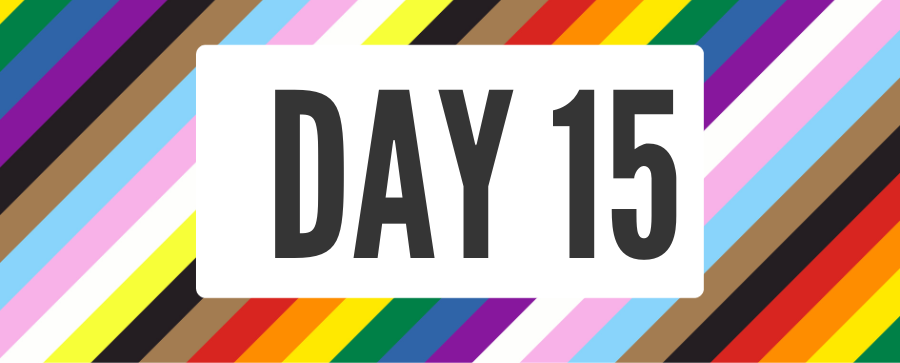
Media
Historically, the LGBTQIA+ community has been excluded or erased from mainstream media for generations. Vita Russo’s book The Celluloid Closet, explores the history of gay and same-sex attraction in film. The book highlighted how the Motion Picture Production Code (1934-1968) was put in place because of governmental and community pressures following the US Supreme Court ruling that films were not covered by First Amendment rights and were subject to censorship. The code effectively banned portrayals of same-sex attraction or gay characters, but later allowed for some depiction of gay characters if they supplied comedic relief or if the character was punished or villainized for this identity. The news media at the time usually referred to homosexuality as either a crime, mental illness, or moral failing.
In 1969 the Stonewall Rebellion, a spontaneous protest by LGBT community members in New York City in response to anti-LGBT police raids, spurred what many consider the modern LGBTQIA+ advocacy movement in the US. The Stonewall Rebellion, LGBTQIA+ advocacy movement work, and the AIDS epidemic are often credited for pushing more media to acknowledge the presence of the LGBTQIA+ community.
The depiction of queer and trans joy in mainstream media, inclusion of non-binary identities, recognition of layered marginalized identities (ex., a trans, Black, and Autistic character), and hiring of trans actors are all relatively recent developments. The shift in telling stories about toward telling stories by and with LGBTQIA+ people is still in its infancy. It’s helping to reshape our society’s understanding of the LGBTQIA+ community and its beautiful diversity. Inclusion of real LGBTQIA+ stories told by LGBTQIA+ actors not only creates authenticity and complexity, but creates a world of possibility for those seeking to see themselves in media. Seeing someone celebrated in media who looks like you, loves like you, and/or shares your identity is sometimes the only representation or access a viewer has in their life. Many LGBTQIA+ people have shared that knowing they’re not alone and seeing the possibility of their life played out in someone else’s story, saved their life.
TODAY’S CHALLENGE
Listen:
- Brittany Luse, Corey Antonio Rose, Liam McBain, Alexis Williams, Barton Girdwood, Jessica Placzek, Veralyn Williams. A Black, trans journey through TV and film, NPR: Pope Culture Happy Hour, (July 4, 2023).
Read:
- GLAAD’S 2021-2022 Where We Are on TV Report: LGBTQ Representation Reaches New Record Highs, GLAAD (February 16, 2022). [7 min read]
- Them – An online media team aimed “to produce the most nuanced, carefully reported, and entertaining LGBTQ+ journalism and content available today.”
- TransLash Media – TransLash tells trans stories to save trans lives. This nonprofit media organization was “founded by Imara Jones, a Black trans journalist, political commentator, style icon, and authority of LGBTQ+ policy worldwide.”
Watch:
Note: some resources below may require a subscription for access.
- Disclosure (2020, 1h 40min) – Disclosure is an unprecedented, eye-opening look at transgender depictions in film and television, revealing how Hollywood simultaneously reflects and manufactures our deepest anxieties about gender.
- The Stroll (2023, 1h 24min) – The history of New York’s Meatpacking District told from the point of view of transgender sex workers who lived and worked there. They recount the violence, policing, and gentrification that lead to a movement for transgender rights.
- The Celluloid Closet (1995, 1h 47min) – A documentary surveying the various Hollywood screen depictions of homosexuals and the attitudes behind them throughout the history of North American film.
Discuss:
- Think back to the first time you saw an LGBTQIA+ person portrayed in media (TV, film, books, social media, etc). How were the characters portrayed? How did the character’s storyline conclude? How were they portrayed differently from or similar to the main character(s)? How might their portrayal have impacted your views of LGBTQIA+ people?
- Think about a character in media that you connected with as a child. What about that character drew you in? Did you identify with them in some way? If so, how did it feel to see parts of yourself reflected in mainstream media? If you’ve never had this experience, how does it feel to never see yourself represented?
- Is there an LGBTQIA+ character in any of the movies or shows you’ve seen recently? How does the portrayal of their story differ from the example you thought of in the first question?
